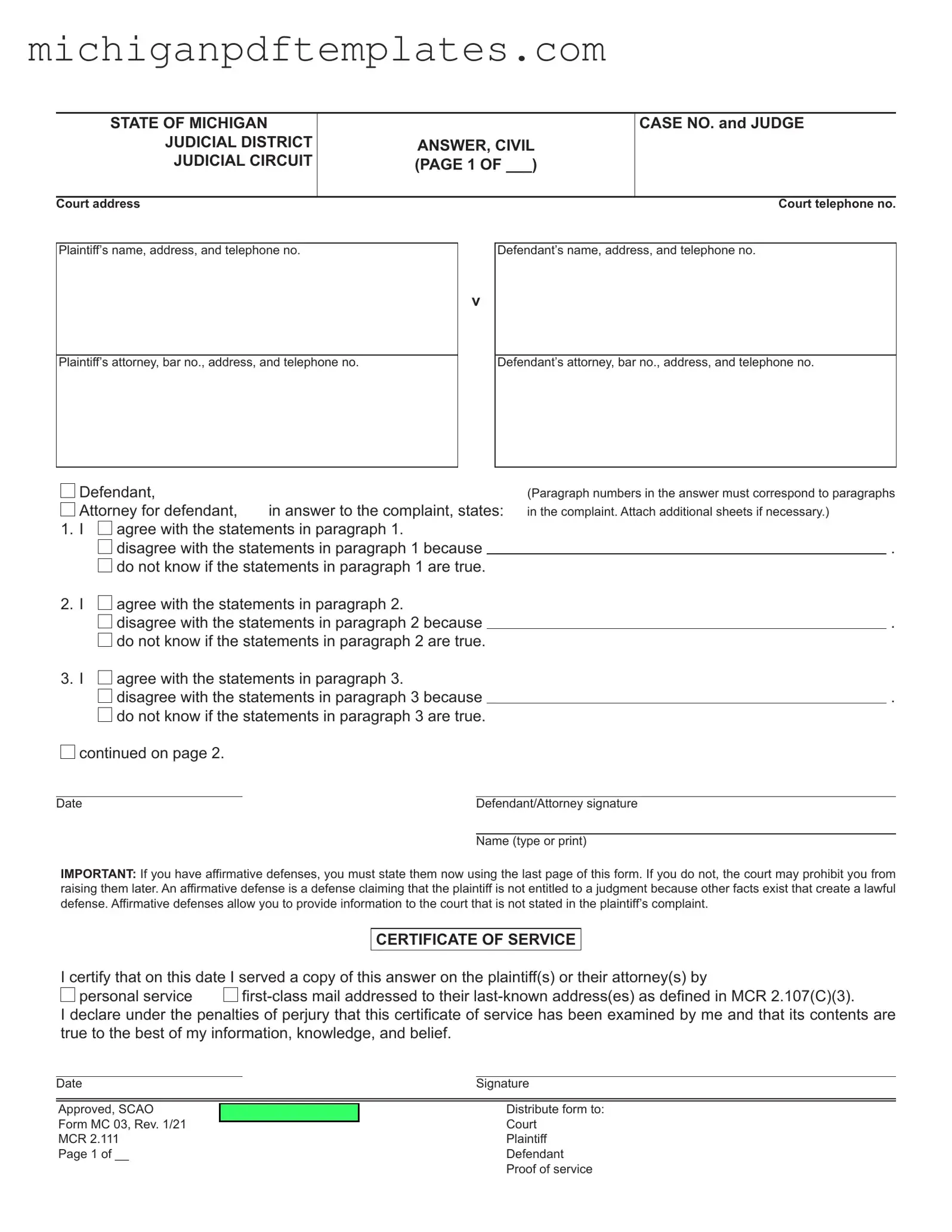Fill in Your Michigan Civil Form
The Michigan Civil Form is a crucial document used in legal proceedings, specifically designed for individuals responding to a complaint. This form, known as MC 03, outlines the necessary steps to file and serve an answer to a complaint in a civil case. Understanding its components and requirements can significantly impact the outcome of your case, so it is essential to complete it accurately and promptly.
To get started on filling out the form, please click the button below.
Get Your Form Now

Fill in Your Michigan Civil Form
Get Your Form Now

Get Your Form Now
or
▼ PDF Form
Finish this form quickly and move on
Fill in and complete Michigan Civil online quickly.